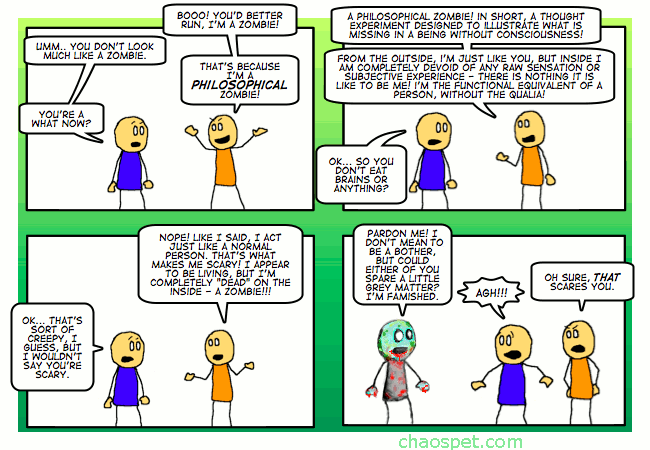Meta, but possibly necessary: Kairosfocus, at UD, has a long, and, to my mind, very odd, piece that refers to this blog, called: FOR RECORD: I object — a “tour of shame” concerning well-poisoning strawman tactics joined to denial of abuse of design theory proponents at TSZ.
Most of the piece I find frankly incomprehensible, but it includes the accusation that I am “enabling evil” here at TSZ:
And, they particularly need to recognise what going along with or making excuses for activists indulging in evil is: enabling.
This brings us to a live case, one implicating a commenter at TSZ, and unfortunately, the blog owner.
apparently because I did not suppress some comment made by OMagain, in response (as it were, given weirdness of the megaphone communication channel between the here and UD) to a comment by Kairosfocus at UD. Now I don’t, as I say, understand the link KF seems to make between mainstream science and fascist regimes, and like OM, I find it odd that KF on the one hand rightly, in my view, warns of the dangers of suppressing dissent, and on the other, wants me to suppress points of view that dissent from his (or, at least, dissent from what KF feels is a misrepresentation of his point of view). But I want to reiterate my own principles here: I will not ban any dissenting view here unless it advocates illegal activities (and possibly not even then – civil disobedience is often ethically justified), nor any member unless they post content that compromises the integrity of people’s computers (including links to porn or malware). This is precisely because I think that suppressing dissent can lead to great evil, although I would point out that turning down an article for publication is not “suppressing” that view, as KF implies with his reference to Granville Sewell’s rejected manuscript on the Second Law of Thermodynamics (far from it – it’s probably had at least as much currency on the web as it would have done if published in print, and I myself have posted links to it, and invited Granville to discuss it here).. Furthermore, I think discussing dissenting views in as civil a manner as is possible to mortals, can lead to great good.
But KF goes on:
Continue reading →










